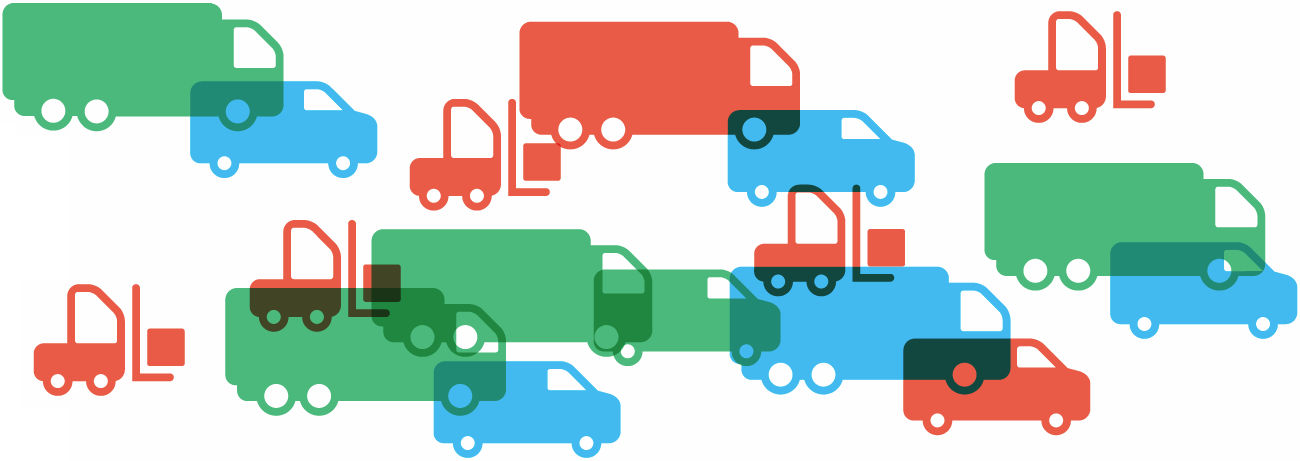24-04-2015
The Pacte Industrial of the Barcelona Metropolitan Region presented on 24 April the document “Reflections on the goods mobility context in the industrial parks of the Barcelona Metropolitan Region”, drawn up by the Economist Ignasi Ragàs, of IR Economia, Logística i Territori, as the first edition of the new collection of Pacte Industrial Papers. The publication was presented at the functions room of the El Vagó building on the premises of the School of Industry, within the context of a roundtable debate on goods mobility, involving not only the author of the document but also Carles Ruiz, President of the Pacte Industrial Executive Committee and Mayor of Viladecans; Juan José Casado, President of the Pacte Industrial Mobility Commission and supervisor of Institutional Policy for the Barcelona Metropolitan Region at the UGT in Catalonia; and Francesc Ribera, Director of the UPIC (Union of Industrial Parks of Catalonia).
The aim of the document is to analyse goods mobility on industrial parks, a little-known reality, despite being a key factor for the competitiveness of the industry and economy of the Barcelona Metropolitan Region (or ‘RMB’). The level of information available as regards goods mobility in general, and in particular in economic activity parks, is highly limited. In order to improve planning and administration, the proposal is for systematic exploitation across Catalonia of the EPTMC (Permanent Road Goods Transport Survey) generated by the Ministry of Infrastructure Development.
The available information indicates that the RMB attracts or generates 50% of all goods transport performed in Catalonia. What is more, 43% of all this activity takes place within the metropolitan context, in other words the point of origin or destination is within the RMB itself. The impact of the economic crisis has caused goods transport to drop to the levels seen in the year 2000, although there has been a recent recovery.
CURRENT ISSUES
An analysis of mobility at certain companies has revealed the following issues:
- The management of circular flows requires improvement at certain large companies.
- Limits on operating hours at the Port of Barcelona make it difficult to transport goods by night.
- There is a shortage of waiting areas for trucks at industrial parks.
- The urban distribution of goods will tend to increase, worsening the current issues.
10 RECOMMENDATIONS TO IMPROVE GOODS MOBILITY
The need is for public institutions, and in particular local councils, to dedicate greater attention to understanding the realities of industrial parks, and to progress towards a more integrated focus in their urban planning, development and mobility policies. A number of the issues requiring greater institutional dedication are:
- Audits of industrial parks performed systematically to evaluate the state of the facilities, maintenance and efficiency.
- Review of urban planning regulations on many parks, in particular the oldest ones, in order to adapt regulations to the requirements of modern industry. This should also prevent them from becoming mixed bags covering different uses which interfere with economic activity and the mobility flows generated.
- Experiment with new focuses to stimulate maintenance and management entities on the industrial parks of the RMB with public and private funding.
- Mobility pacts on industrial parks to establish the rules of the game so as to manage problems such as a lack of highway discipline and irregular parking.
- Improve signage on industrial parks at both the physical and digital levels.
- Facilities to add value to parks, such as for example truck parking spaces.
- Better integrate goods mobility within the processes of devising and administering the planning of economic activity zones.
- Integrate goods mobility in greater depth within local mobility plans. Support is needed for policies which will smooth out flows of transportation and distribution over the course of a 24-hour period, while promoting the use of vehicles and optimising capacity.
- Maintain the industrial base of the RMB. Territorial and urban planning must allow the central core of the RMB and the major cities of the Vallès and Baix Llobregat regions to maintain their own industry, rather than continuing to displace industrial activity outwards.
- Activate the Logistics System Board at the metropolitan level, as established in the PDM of the ATM.
This means addressing initiatives to renew industrial parks, allowing them to remain sites which offer added value for industry and logistics in the 21st-century.
Links
Press release (in Catalan)

Pacte Industrial Working Paper 1 (in Catalan)

Tags: Goods, Industrial Pact Working Papers, Industrial parks, Mobility
